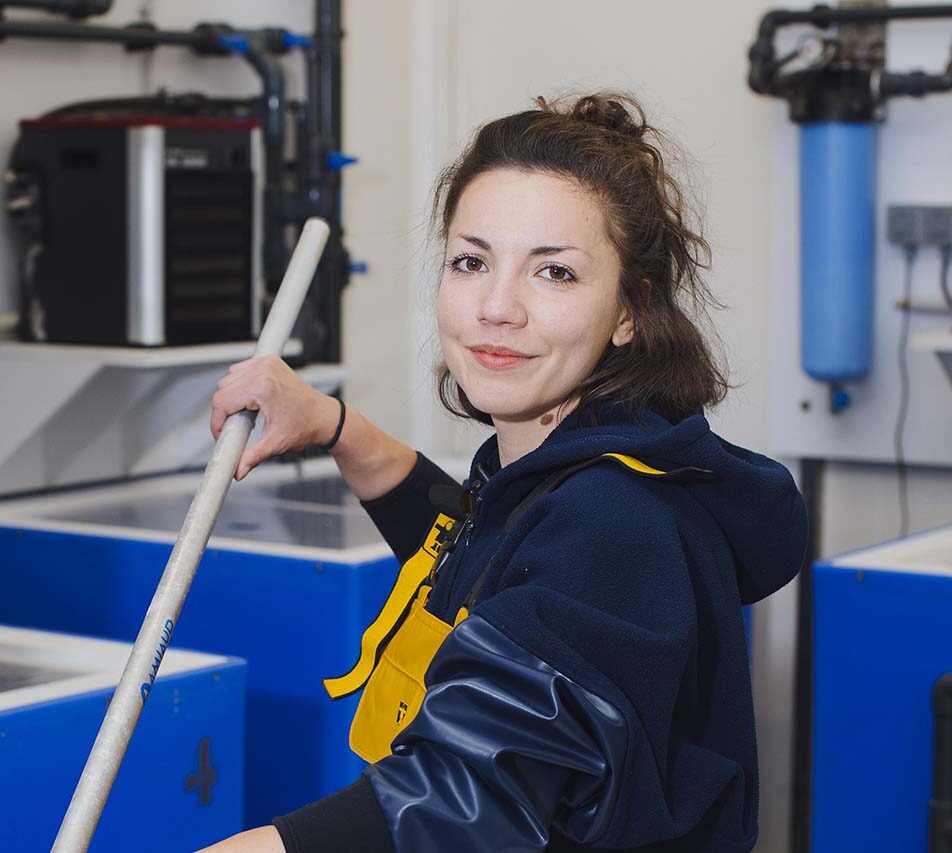Noémie Coulon, voice of the ocean
A postdoctoral researcher at the Marbec laboratory, ecologist Noémie Coulon is one of nine young researchers selected by the Ocean Institute to cover the One Ocean Science Congress in Nice in early June. It's a perfect fit for this specialist in the impact of climate change on rays and sharks in Europe.

Its initial findings hada"devastating effect" on the marine science community, says Noémie Coulon. In her thesis, defended at the end of 2024 at the National Museum of Natural History (MNHN), the marine ecologist shows the worrying effects of climate change on sharks and rays in Europe, species that were previously considered resilient. "There was a relative scientific consensus that these species, which are hundreds of millions of years old and have survived numerous climate crises, would be able to weather this new crisis."Several findings show that this is not the case.
The young researcher first highlighted the northward migration of rays and sharks as a result of climate change. To reach this conclusion, she worked with fishing catch data from scientific bottom trawling campaigns in European seas. A quarter-century time series for nine species caught provided her with a valuable dataset. "I found six species in the southern North Sea that had never been observed there before, even going back through historical records throughout the 20th century."
Mortality rate of 89% at +4°C
Even more worrying is the impact of warming and acidification of the water on the reproduction of these large predators. The breeding of small dogfish eggs in tanks shows that, when the water temperature is varied, while nothing happens with an increase of +2°C, mortality reaches 89% at +4°C! Beyond the eggs, "there could be impacts at all levels: gamete production, the signals needed for males and females to meet, sperm storage by females, etc.," adds Noémie Coulon. These are very worrying results, confirmed by other studies on the greater spotted dogfish, which is more sensitive to environmental changes and shows a possible collapse in populations at +4°C."
France is home to more than a hundred species of sharks and rays, "so these issues are not trivial," emphasizes the young researcher, who highlights the unique and irreplaceable functions of these large predators, which are already threatened by fishing. In addition to their place at the top of the food chain, these species play a role in the carbon cycle by migrating daily to the depths. "Some rays, which are burrowers, stir up the sand and thus energize the ecosystem by putting particles into suspension and preventing anoxia in the environment," adds the researcher, who makes no secret of her pleasure in working on these large fish, a holy grail for young marine ecologists.
“Mobilization strategy”
As a postdoctoral researcher at the Marbec laboratory until 2027, Noémie Coulon is currently involved in monitoring fish in the marine protected areas of the French Mediterranean. Using diving observations and DNA sampling in the field—two non-invasive approaches—she is working in particular to model the characterization of fish in these habitats.
But for now, she is dedicating herself to another task: defending the cause of marine species by relaying the scientific findings of the two thousand researchers participating in the One Ocean Science Congress. Winner of the L'Oréal-UNESCO For Women in Science Young Talent Award 2024, Noémie Coulon is one of nine "ECOP insiders," or "early career ocean professionals," who will be attending the congress to be held ahead of the UNOC in Nice in early June. Each has been chosen for their ability to share this information widely with the nine major language communities: Mandarin, English, Spanish, Arabic, Hindi, Portuguese, French, Russian, and German. "There is both a need to raise awareness among the general public and a strategy to mobilize support for these issues in order to influence the negotiations that will follow," argues the scientist.
